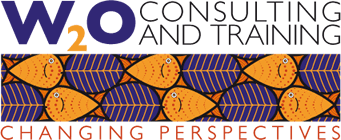
Male and female brains are different. It may well be that some of the career success for women is dependent on those differences. Perhaps your career success is build on your capabilities as a ‘big picture thinker’ or you should use that capability more to build a successful career.
Check out if you are a ‘Big Picture Thinker’ – a typical strength of the female brain – and are using this strength at work.
More connections
One of the key differences between male and female brains is that female brains have more connections between the different parts in their brain. On brain images it is clearly visible that, when a woman performs a task, many different areas in the left and right hemisphere light up. When a man performs the same task, more connections in one single part of the brain light up.
We don’t just know this from brain images, we also know it from much earlier brain research. Brain research used to be performed on people with brain damage. It was found that men with damage to their ‘communications centre’ often didn’t recover well. Women with damage to the same part of their brain, would recover a lot better, suggesting other parts of the brain took over the tasks of the damaged part.
Brain researchers stress that it’s not wise to connect these differences directly to behaviour, as the way we behave isn’t directly deducible from what we see in the brain.
However they do suggest that women tend to be better at intuitive and analytical thinking. It seems logical to contrast that with men being better at focussed thinking.
Big Picture Thinking
You may well recognise this in yourself. I have called this particular strength, when applied to the workplace ‘big picture thinking’. Others call it e.g. ‘whole brain thinking’ or ‘intuitive thinking’.
Big picture thinking means that you easily combine different facts and topics. If someone talks about a new product, you can already see issues in production and logistics, and can imagine what the marketing department will like about it.
Big picture thinkers are typically people that like combining different areas of expertise. This could for instance be an academic combining theory from biology, psychology and pedagogy or a medical specialist combining insights from hematology and rheumatology.
They are also people that would be good at seeing the impact of decisions on a large amount of stakeholders. If a neighbourhood is under development, they will have a good overview of impact on all stakeholders, such as current residents, developers, councils, builders and conservation groups.
Big picture thinkers typically ask why a lot. They like to understand how tasks fit in a context, so they can create an image of what they are doing in the bigger picture. When they have that picture they can be more creative and effective in performing the task.
Big Picture Thinking adds Value and Career Success for Women
If ‘big picture thinking’ is your strength, you can bring huge value to a team. You are the one who can foresee unwanted consequences and you are the one who can bring up those stakeholder impacts that others have not yet seen, and you can ensure they are taken into account.
As a result of your questions to understand the bigger picture, business decisions are better understood and substantiated and can even lead to better decisions. Because you often know the wider context of a task and understand fully what the intended aim is, you can bring great innovation and flexibility in the performance of that task.
Questions for Reflection
Do you feel you do indeed use this capability to make connections more than others? Then you are a big picture thinker. It’s key that you make the most of this for career progress.
Ask yourself how you apply your analytical and intuitive thinking:
- In what ways is your thinking different from people you work with? Which connections do you see that others may not?
- In which situations do you apply your way of ‘thinking big picture’?
- What exactly do you see, say or ask?
- How does this help you contribute to successful outcomes?
- How is it helping your career already, and how can you make it more visible so it would help your career even further?


Author: Inge Woudstra
Would you like to know more or have a question? I am always happy to have a chat to discuss your needs. Why not drop me a line or pick up the phone? Call me at 01372 457 907 or Just contact me to discuss your requirements by e-mail.I can help you recruit, retain and advance women, and typically work with organisations in tech and engineering.
Or just check out my book 'Be Gender Smart - The Key to Career Success for Women'